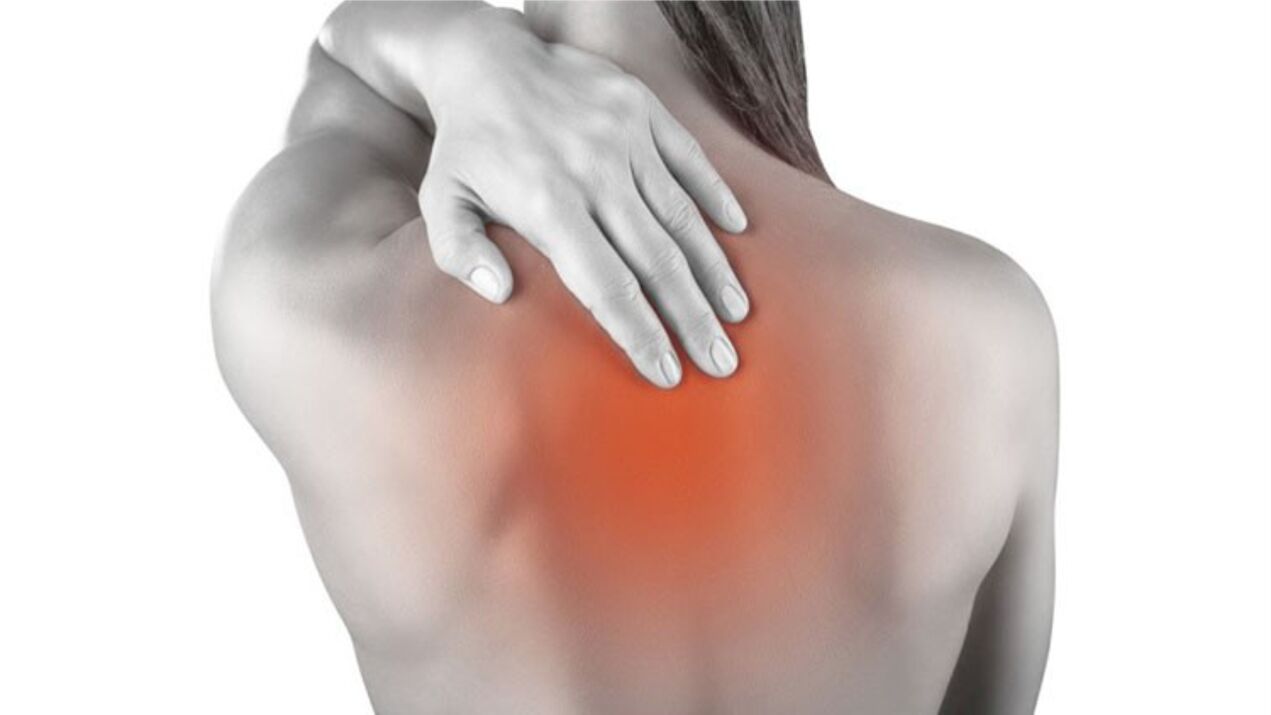
Back pain is a common ailment among people of different age groups.Unpleasant sensations are often noted in the area between the shoulder blades.Pain syndrome can be associated with pathologies of the spine, disorders of internal organs.
The use of pain-relieving ointments and other analgesics is not an option.Relieving discomfort will improve your well-being, but the pathological process will further destroy the spine or internal organs.In some cases, back pain between the shoulder blades is the result of metastatic cancer to the lungs and stomach.Approach this problem responsibly and entrust the therapy to professionals.
Possible causes of pain
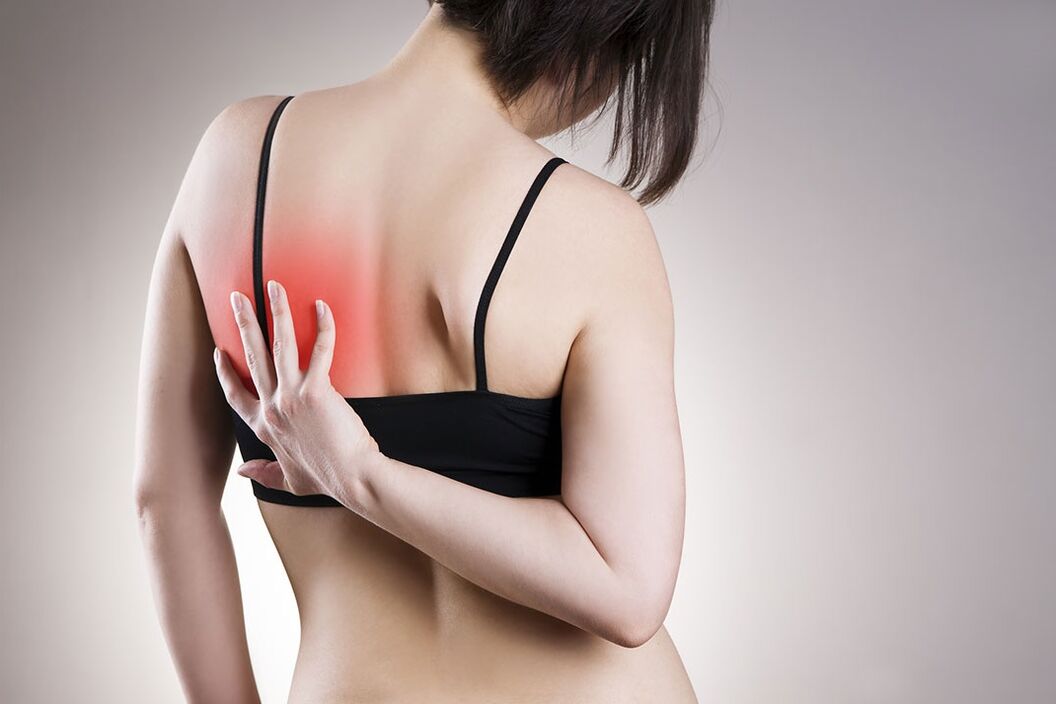
Why does my back hurt in the shoulder blade area?Remember: pain is a symptom of other diseases, and not a separate pathology.Only by identifying the root cause of discomfort can you overcome the disease and get rid of unpleasant sensations.Experts distinguish two categories of causes that cause pain in the shoulder blades: pathologies of the spine, disorders of internal organs.Let us consider each group of possible causes in detail.
Intervertebral hernia
This phenomenon is quite rare;the lumbar region is often affected and not the thoracic region.The pathology is characterized by the fact that the fibrous ring, against the background of various negative factors, begins to swell, the distance between the vertebrae decreases significantly, which leads to pinching of the nerve roots.The fibrous ring acts as a shock absorber.
Intervertebral hernia in the thoracic region is characterized by the local appearance of pain, sometimes the discomfort spreads to the chest, which resembles symptoms of diseases of the respiratory tract and heart.
Spinal tuberculosis
Many have forgotten about this disease, but according to statistics, 99% of the world's population are carriers of Mycobacterium tuberculosis.Against the background of mechanical damage to the spine, hypothermia or weakened immunity, a tuberculous lesion may form at the site of the bruise.The pathology cannot always be recognized in time, not even on x-rays.
Often the disease is discovered in an advanced form, when the patient already has a series of complications and complains of severe pain in the shoulder blades.A characteristic sign of tuberculosis is high body temperature, burning in the chest region, which can spread to nearby tissues.
Muscle strain, hypothermia
Excessive physical activity, improper exercise in the gym and constant sitting in an uncomfortable position lead to overstrain of the back muscles.Office workers, truck drivers, surgeons and seamstresses are subject to this pathology.
The state of health worsens due to hypothermia of the body (uncontrolled operation of the air conditioner, draft).The pain in the shoulder blade area intensifies, the patient must take NSAIDs and rub with special ointments.Avoid drafts and avoid excessive physical activity.
Scoliosis
Every schoolchild has heard about this disease from teachers and parents while sitting incorrectly at the desk.Adults forget about preventive recommendations, which leads to the appearance of scoliosis of various degrees in 50% of the population.The disease is a curvature of the spine, often affecting the thoracic, cervical and spinal regions.The ribs are closely connected to the thoracic region, so patients complain of pain in the shoulder blades.
Characteristic signs of scoliosis include:
- increased fatigue in the back muscles;
- one shoulder can be positioned higher than the other;
- discomfort in the shoulder blades appears after physical work, long sitting at the computer or can accompany the victim on an ongoing basis.
Spondyloarthrosis
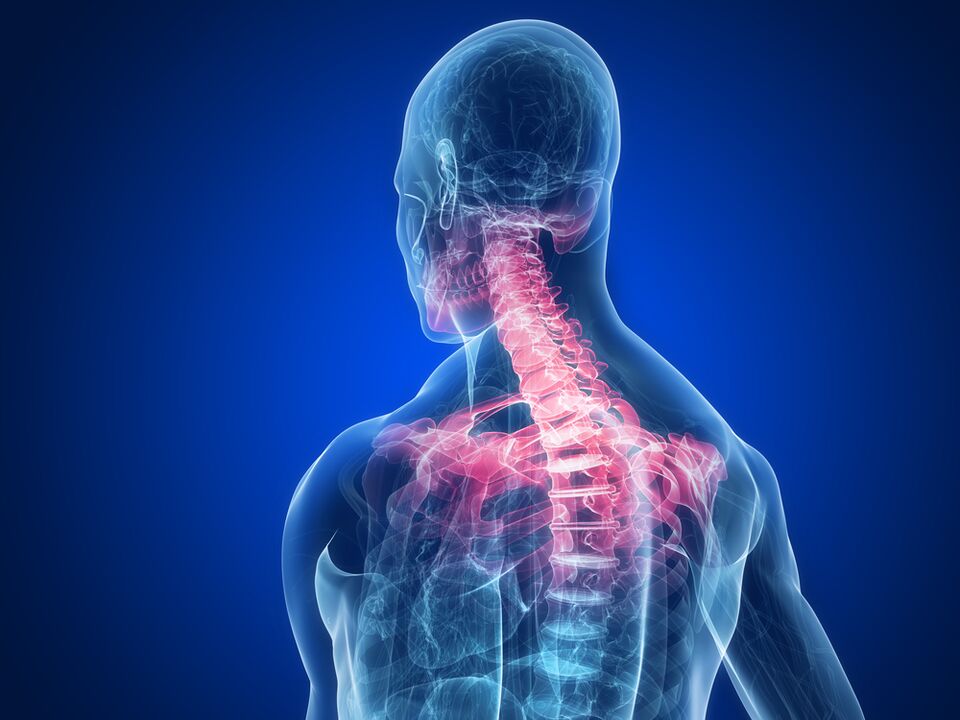
The disease is similar to osteochondrosis;the differences can only be noticed by specialists during a series of specific studies.Spondyloarthrosis is characterized by the destruction of cartilage, the replacement of missing areas with bone tissue, which leads to the formation of bumps, nerve damage and severe pain in the shoulder blades.
Osteochondrosis
A sedentary lifestyle and obesity lead to dystrophic changes in the joints and spine.Osteochondrosis is also diagnosed in children;the cause of the pain is the inflammatory process in the soft tissues adjacent to the damaged vertebrae, which further pinches the nerves.
Internal organ disorders
All organs and systems of the body are interconnected;Shoulder blade pain can indicate many diseases not related to the spine:
- disorders of the cardiovascular system.Myocardial infarction, coronary heart disease, and angina pectoris can cause acute chest pain that radiates to the shoulder blades.During an acute attack, discomfort lasts no more than five minutes, blood pressure drops sharply, and cold sweat occurs.In this case call an ambulance;
- gastrointestinal diseases.Pancreatitis, cholecystitis, peptic ulcer are common causes of chest pain from different sides.Oncological diseases in this area can also cause discomfort;
- respiratory system diseases.Shoulder blade pain is accompanied by cough, chills, fever and muscle aches.
Back pain during pregnancy
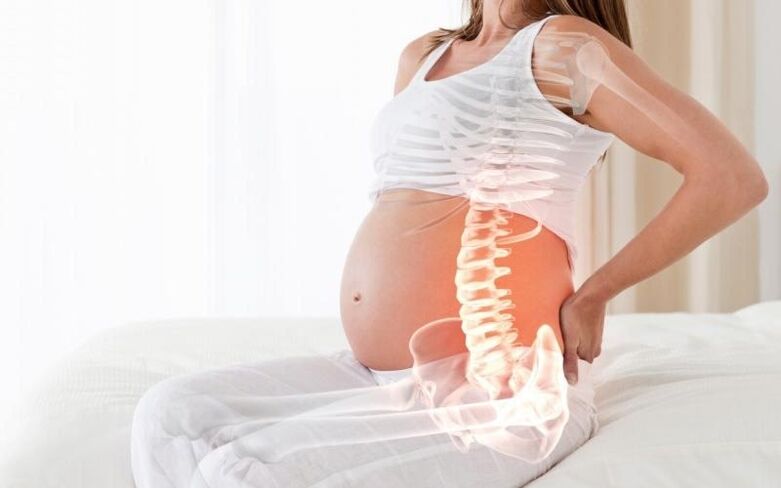
Against the background of an increased load, curvature of the spine and the body in an unusual state when carrying a child, patients experience varying degrees of pain.A change in the center of gravity contributes to excessive compression of the vertebrae, which causes discomfort.
Pain in the shoulder blades can accompany a woman after giving birth.This is due to epidural anesthesia, which is often used for cesarean sections.The actual procedure involves inserting a special catheter into the epidural space, where it remains for the required period of time without coming into contact with the spinal cord.Painkillers are administered through a catheter, which causes the lower body to lose sensation for a period of time.
Improper manipulations, sharp turns during catheter insertion and other unforeseen circumstances lead to damage to the membranes and substance of the spinal cord.The procedure itself is complex and requires the utmost professionalism on the part of the doctor.
Symptoms
The nature of pain in the shoulder blades is of great importance and helps to find out the cause of the discomfort:
- chronic – the victim constantly feels bad, there are attacks of dull pain and periods of “calm”.This type is typical for osteochondrosis, intervertebral hernias and other chronic diseases of the spine;
- spicy.Suddenly the patient feels a twinge of pain and the discomfort also suddenly disappears.This picture is typical for traumatic injuries, crushed nerve roots and diseases of internal organs.
Be careful!Additionally, patients may complain of discomfort along the entire spine, headaches, and other clinical manifestations of the underlying disease.
Diagnostics
What to do if your back hurts in the shoulder blade area?Patients often don't know which specialist to turn to.It all depends on the nature of the pain, its duration and the negative events that preceded the onset of the discomfort.

The diagnosis is carried out:
- neurologist.Most victims should consult this doctor, because intervertebral hernias and osteochondrosis are accompanied by crushed nerve roots and corresponding symptoms;
- orthopedic-traumatologist.In case of deformation of the spine (kyphosis, scoliosis), ankylosing spondylitis, various traumatic injuries of the spine, it is advisable to visit this specialist;
- general practitioner or family doctor.A doctor often solves many problems for patients.The doctor, knowing the family history and characteristics of the person, will identify the cause of the discomfort or refer you to a more specialized specialist.
To make a diagnosis of shoulder blade pain, several studies are used: x-ray, CT, MRI, blood tests, urine tests.Specific manipulations depend on the nature of the pain and the presence of accompanying discomfort.
Effective treatment options
In case of acute pain, the main task is to relieve it.Then they find out the cause of the discomfort and prescribe the necessary therapeutic course.
For unpleasant sensations in the shoulder blades, it is recommended:
- temporary pain relief.Nonsteroidal anti-inflammatory drugs are used.Depending on the severity of the discomfort, drugs are used in the form of tablets, ointments, injections;
- physiotherapy treatments (magnetotherapy, UHF, shock waves, mud therapy).In case of spinal problems, the physiotherapeutic effect on the shoulder blade area is a mandatory aspect of therapy.Manipulations relieve pain and reduce inflammation.Such methods cannot be used for tumors or infectious diseases with pus formation;
- massage, manual therapy.Used only for pain caused by pinched nerve roots or damage to the vertebrae.Impacts on the spine help to lengthen it and relax the muscles;
- compresses, lotions.Dimexide (1:3), alcohol (1:1) are used in ratio with water.Compresses cope with unpleasant sensations and relieve inflammation.Immerse the gauze in the prepared infusion, wrap it in cellophane and leave for two hours.After the procedure, apply gel or ointment.
Disorders of internal organs are treated in other ways, taking into account the stage of development of the pathology.In each individual case, the doctor selects an individual therapeutic path.Self-medication is harmful to your health, even to your life.
Prevention measures
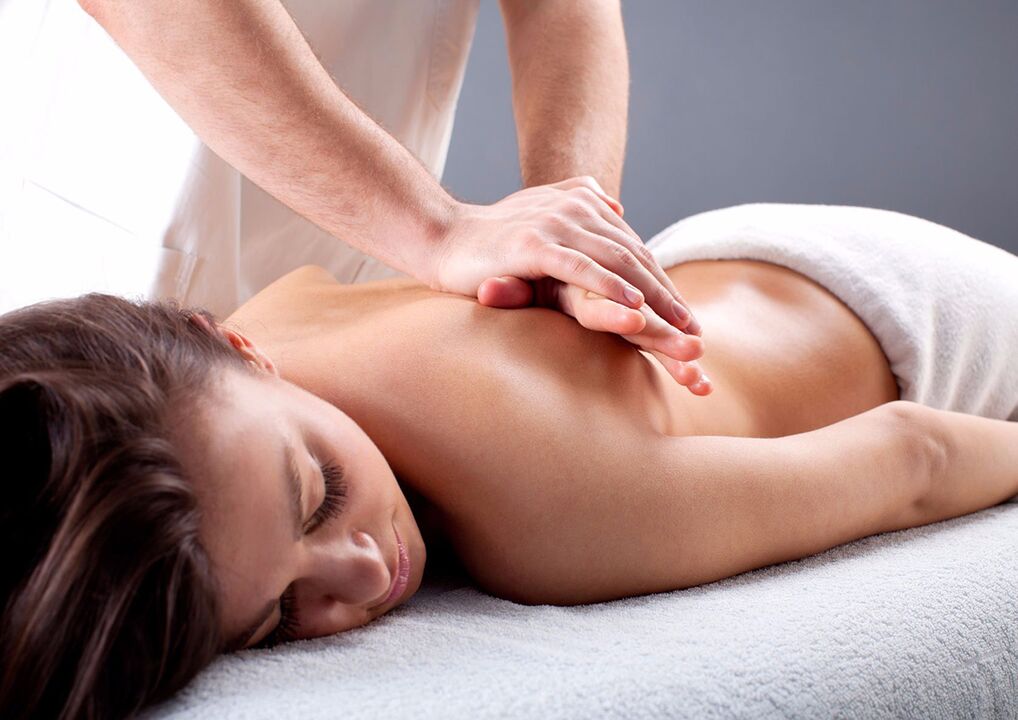
It is important to prevent not the discomfort itself, but the root causes that caused it.
Expert recommendations:
- Get a massage regularly;
- avoid excessive exercise, but light physical exercise has a beneficial effect on the muscle corset;
- avoid drafts, hypothermia;
- eat well, try to abandon bad habits.
An important role is played by timely contact with a specialist in case of pain between the shoulder blades.Pathological changes are not formed in one day.The earlier treatment is started, the higher the likelihood of full recovery and the risks of irreparable consequences for the body are minimized.
































